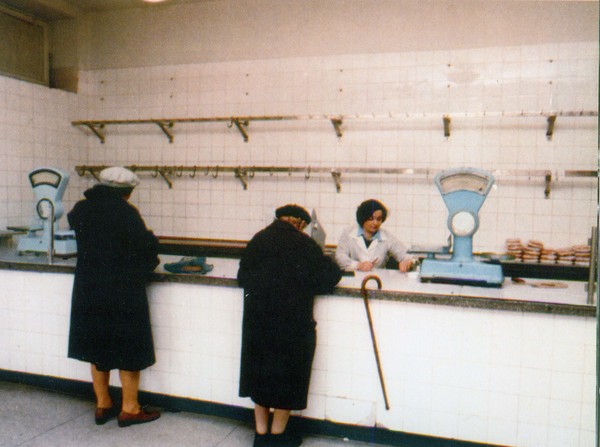The Butcher Shop, Warsaw

Annotation
In the 1980s average citizens of East European countries faced many challenges, including daily difficulties created from ongoing and severe shortages of consumer goods. Buying such necessities as food, clothing, and hygiene products was a recurring obstacle to average consumers. Store shelves were frequently empty, and the state distributed ration cards, especially for meat products, in an effort to limit what each family could purchase. This 1982 photograph, taken in a butcher shop in Poland's capital city of Warsaw, clearly conveys the problem of acquiring basic necessities, such as meat. With the exception of some slabs of what looks like fatty bacon, the store shelves in this shop are empty. The two female shoppers purchase (possibly with ration cards) this meat because that was the only product available. Such hardships in maintaining adequate living standards were one of the numerous factors that led to the fall of state socialism throughout Eastern Europe and the Soviet Union.
This source is a part of the Consumerism in Poland teaching module.